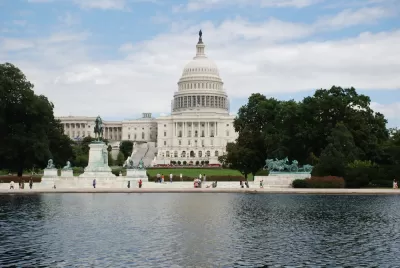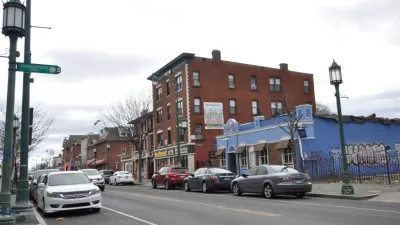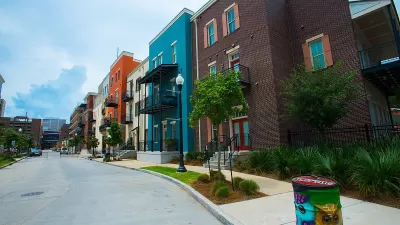If passed by the Senate, it would represent the most significant reform to the LIHTC in decades. Some say it’s still not enough.

Last month, the U.S House of Representatives passed a bill that would broaden the scope and accessibility of the low-income housing tax credit (LIHTC), reports Bianca Barragan in an article for Bisnow. Estimates project that the changes to the LIHTC within the Tax Relief for American Families and Workers Act would facilitate the creation of 200,000 new affordable housing units over the next few years.
The bill now goes to the Senate for consideration. If approved as written, it would:
- reinstate a 12.5 percent boost for the 9 percent version of the LIHTC that was implemented in 2018 but expired in 2021;
- allow states to allocate more credits for affordable housing projects, effective for taxable years beginning after Dec. 31, 2022; and
- lower the threshold of 4 percent state and local tax-exempt bond financing a project has to receive for its developer to qualify for the maximum credits to 30 percent instead of the current 50 percent.
With homelessness at record highs and the National Low-Income Housing Coalition finding that no state in the country has an adequate supply of affordable housing that the poorest renters can afford, affordable housing advocates say these proposed changes to the LIHTC are a “big deal,” writes Barragan. However, some say it doesn’t go far enough.
The National Low-Income Housing Coalition told Bisnow that even LIHTC-financed units are too expensive for the lowest income households and this legislation does nothing to address that. And the Federation of American Scientists recently called upon Congress to amend the federal code governing the program to require nonprofit developers to reinvest profits from LIHTC-funded properties into building more affordable units rather than spend it on other priorities not related to housing.
FULL STORY: 'This Is A Big Deal': LIHTC Could See Most Significant Reform In Decades

Alabama: Trump Terminates Settlements for Black Communities Harmed By Raw Sewage
Trump deemed the landmark civil rights agreement “illegal DEI and environmental justice policy.”

Study: Maui’s Plan to Convert Vacation Rentals to Long-Term Housing Could Cause Nearly $1 Billion Economic Loss
The plan would reduce visitor accommodation by 25% resulting in 1,900 jobs lost.

Planetizen Federal Action Tracker
A weekly monitor of how Trump’s orders and actions are impacting planners and planning in America.

Baltimore Ordered to Improve Sidewalk Accessibility
The city is one of many to face lawsuits for failing to comply with the Americans with Disabilities Act.

This Toronto Suburb Has More Bus Riders Than Columbus, Ohio
Brampton, Ontario used gradual improvements in service to prove that if you build it, they will ride.

Paris Bike Boom Leads to Steep Drop in Air Pollution
The French city’s air quality has improved dramatically in the past 20 years, coinciding with a growth in cycling.
Urban Design for Planners 1: Software Tools
This six-course series explores essential urban design concepts using open source software and equips planners with the tools they need to participate fully in the urban design process.
Planning for Universal Design
Learn the tools for implementing Universal Design in planning regulations.
Smith Gee Studio
Alamo Area Metropolitan Planning Organization
City of Santa Clarita
Institute for Housing and Urban Development Studies (IHS)
City of Grandview
Harvard GSD Executive Education
Toledo-Lucas County Plan Commissions
Salt Lake City
NYU Wagner Graduate School of Public Service




























